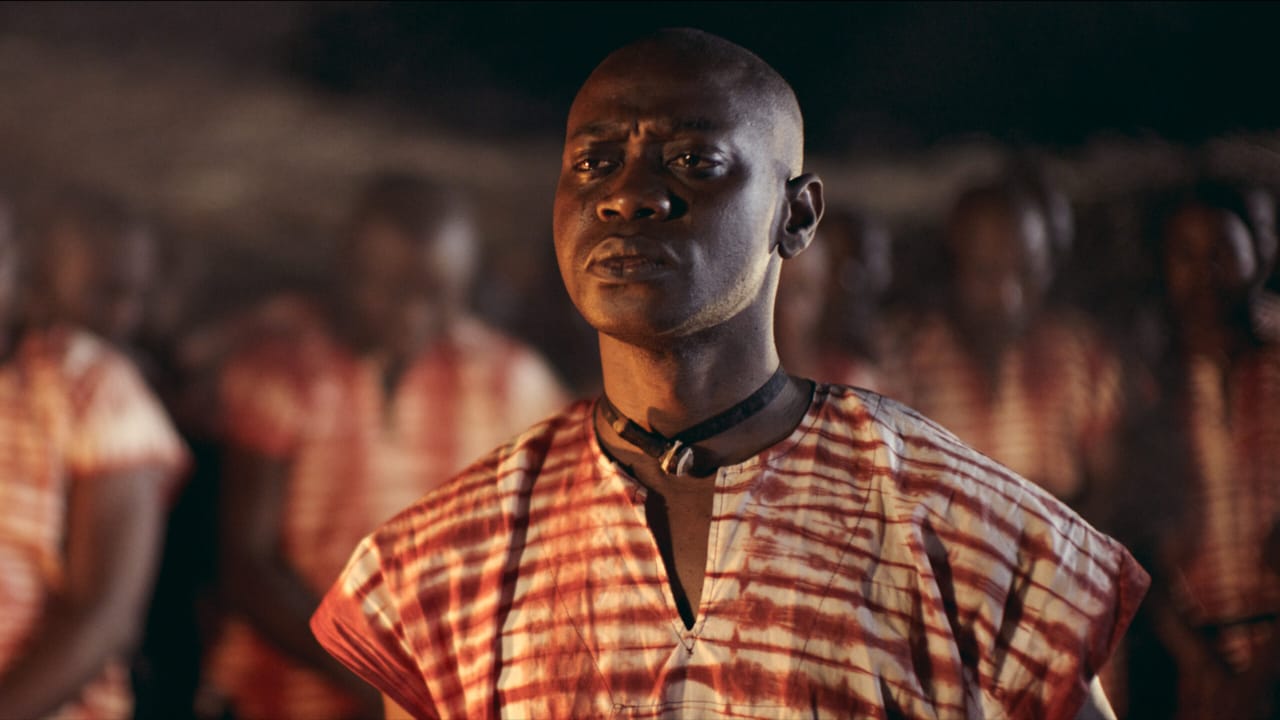...To get all news updates, Join our WhatsApp Group (Click Here)
Also Join our WhatsApp Channel (Click Here)
Fictional narratives compel us to suspend disbelief.
This willing suspension of disbelief is required as you settle down to watch Femi Adebayo’s delightful and bloody epic, Jagun Jagun especially if you are someone with a handle on Yoruba history and who expects some fidelity; chronological or otherwise.
Different kingdoms are mentioned in Jagun Jagun as is the fact that Ogundiji son of Ogunrogba has installed many kings and regents but the Yoruba history buff may well argue as to the significance of those kingdoms and their place in history.
But while we cannot vouch for historical or geographical accuracy, there is no doubt that Yorubaland has known its fair share of warriors and marauding mercenaries. Ogundiji could have well been plucked out of history as a composite of say, Ogedengbe the Obanla of Ijesha land and Gbonka, one of Sango’s fiercest generals.
The presence of revered Ifa priest, Chief Ifayemi Elebuibon, in a blink-and-you-miss-it cameo should be enough to assuage those prone to quibble.
But not to split hairs, Femi Adebayo has given us a movie propelled by a heady cocktail; a truly compelling narrative with visually stunning sequences and well-choreographed fight scenes. It is also redolent with proverbs and animist and judeo-christian allusions.
Jagun Jagun is an enjoyable movie conceived on an epical scale.
The movie takes off slowly but once it gets going from around the 30 minute mark, Jagun Jagun delivers without let keeping the viewer, whether a Yoruba speaker or not, glued to the action unfolding on the screen and anyone with half an ear will notice the tongue twisters and puns that litter the movie.
“Oh, Gbotija,” Kitan says to her mother who flings back a quick riposte
“No, Gbontogun.”
The biggest play on words happens with Ogun, which depending on the inflection and even with my below-basic Yoruba, I can tell yields a bountiful harvest of puns from Ogun (war) to Ogun (charms) to Ogun (sweat). The Oguns come fast and furious.
The movie which could as well have been subtitled “War” is really no more than the shenanigans of men who love war and killing.
The story is an easy one and plays along the trajectory of familiar tropes. Ogundiji is a gun for hire who has managed to put many undeserving fellows on the throne. Their tenuous hold on power is buoyed by Ogundiji’s fearful warriors and the demonic Agemo who when unleashed changes the tenor of every battle.
Young men tired of seeing their villages sacked and people killed, decide to enlist at Ogundiji’s school of war where they will be turned into warriors, the eponymous Jagun Jagun.
But it is not all who learn to fight that end up becoming warriors. (Cue the unnecessary similarities to The Woman King.)
One of the new enlistees is Gbotija, son of Lagbayi the one who carves wood out of the Iroko tree, and we notice as he travels to Ogundiji’s school of warriors that he has an affinity for trees and the forest.
He excels at his training and thanks to his ability to converse with trees and all things made of wood manages to impress at the end thereby coming to the attention of Ogundiji.
But Gbotija does not just have an uncanny relationship with trees and wood, he is also a bit of a rebel and his rebellious streak gets him into trouble with “Princess” Kitan daughter of the self-styled “King” Ogundiji.
A tryst near the palace leads Gbotija to save the “Queen” but instead of gratitude, Gbontija is caught in the cross hairs of Ogundiji’s envy.
In annotations made on his copy of Shakespeare’s play Othello, the poet and critic Samuel Taylor Coleridge notes that Iago’s hatred of Othello comes from what he describes as “motiveless malignity” and a wish to exert his power and supposed intellectual superiority.
The same can be said of Ogundiji’s hatred and envy of Gbotija’s rising profile. When his wife says he should have given Gbotija a gift for saving her life, Ogundiji reacts in anger “Should I give him my head?”
That hatred and anger and an inability to acknowledge goodness is the beginning of Ogundiji’s downfall signaled not really by his ill treatment of Gbotija but the killing of Wehinwo, whom he burns alive for doing a good deed.
His need to exert his power and take out Gbotija without seeming to, leaves him progressively shorn of his powers. Gbogumi is killed and Agemo, his trusted demonic assassin is retired leaving him at the mercy of “mere” warriors who are easily swayed by a mere speech.
The duel which Ogundiji instigates between the adopted father and son is straight out of the lore of Sango when he pits Timi against Gbonka and Gbotija returning from his watery grave is akin to Gbonka rising three days after being burnt to death on Sango’s orders.
To stray further afield, the unfolding dynamic between Ogundiji, Gbotija and Kitan mimcs that between between Saul, David and Jonathan and who can hear the shouts of adulation trailing Gbotija and not think of “Saul hath slain his thousands, and David his ten thousands,” from 1 Samuel 18:7.
Femi Adebayo’s movie proceeds at a controlled pace; the characters do not shout as is typical of many Nollywood films (side-eye Sola Sobowale); there is no slapstick masquerading as comic relief despite the presence of funny men, Mr. Macaroni and Woli Agba and above all it gives us characters who manage to transliterate Yoruba into English with relish.
The producer and villain of the movie, Femi Adebayo plays against his usual “fine boy” characterisation. His tic is both a source of menace and pity because despite his power he seems to have been taken hostage by his own body.
Gbogunmi – child of war and charms, son of a black smith, one who battles from morning till night, son of the iron bender, one who stacks up wars like tubers of yam – is a delight to watch. The constant swishing of his agbada, a metonymic substitution for truncated speech is at once funny and yet evocative of his frustration. When he tells Gbotija that “I have charms, plenty charms” one does not see it as a boast but more as a man marveling, as many do, at his own greatness and invincibility.
Lateef Adedimeji delivers a performance not seen since Wale Adebayo played Sango in Femi Lasode’s 2007 movie of the same title though his delivery is more sedate and nuanced. He is somewhat an anti-hero conflated about right and wrong.
Fathia Balogun’s turn as the supportive wife of the tempestuous Ogundiji recalls the relationship between Sango, god of Thunder and Lightning and his wife, Oya, the goddess of storms, who though more powerful than Sango (many believe) subjugates her powers for love and peace to reign.
Bimbo Ademoye has limited screen time as Morounmubo but she shines in her role as the loving wife of Gbogunmi. The spouse of the greatest warrior in the land she is the neck that “controls” the head. Her facial expressions during her husband’s final duel show her off as an actress with emotional range. The shift from pride to panic is almost primal.
The revelation is Bukunmi Oluwashina who plays Kitan. In her character, the famous lines by WB Yeats – “a terrible beauty is born” becomes flesh. Her gradual attraction and tragic romance with Gbotija is a beautiful thing to behold.
As one comes to the end of the movie, one is left with two head-scratchers -whatever happened to Weyinwo’s betrothed after her failed assassination attempt or was she the one who is speared through during the Aje festival?
Secondly, what was that early scene in Oba Kayeja’s palace about and why did Odunlade Adekola’s character agree to die such a miserable death at the beginning of such an important movie?
But head-scratchers aside, Jagun Jagun directed by Tope Adebayo and Adebayo Tijani is a worthy addition to the Nollywood corpus and in this film which could have been shorter by 30 minutes; Nollywood may well have found a worthy contender for the foreign language Oscar.
(Please watch it in Yoruba with English sub-titles. Thank me later.)
***Toni Kan, award-winning writer, editor and PR expert writes from London.
You can get every of our news as soon as they drop on WhatsApp ...To get all news updates, Join our WhatsApp Group (Click Here)
Also Join our WhatsApp Channel (Click Here)

















